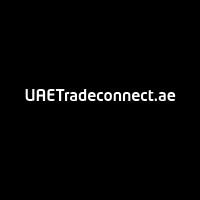UAE Trade Connect (UTC), a trade finance solution that addresses the risk of double financing and fraud across the United Arab Emirates, has moved into full commercial production.
Having been in development since 2017 through an initial collaboration between telecommunications firm Etisalat and tech company Avanza Innovations – as well as First Abu Dhabi Bank (FAB) – the platform formally went live with seven UAE-based commercial banks this week.
UTC allows banks to send invoice information into a private permissioned blockchain network through a node on the blockchain. This information is then run through Etisalat’s fraud detection system, which uses AI to check invoice data against other invoices and external sources for duplication and fraud.
Manoj Menon, head of global transaction banking at FAB, spoke to GTR in 2019 about fraud risks in the country.
“One of the nuances in the UAE is around SMEs, where there have been a lot of frauds happening within the banking sector with duplicate invoices being financed. The challenge for the banks is to detect this fraud,” Menon said.
Using UTC, banks can send batches of invoices to the platform, which will look for exact duplicates by assessing details such as the invoice number, value, dates and supplier names. The platform has the capacity to assess 40 invoices a second, Zulqarnain Javaid, CEO at UTC, tells GTR.
As well as perfect matches, Javaid adds that UTC can also look for close copies and provide an “amber” warning to banks in certain circumstances.
“We have some fuzzy rules around, for example, does the invoice have a similar value and date, but a different invoice number?”
The platform has been in a pilot phase since the beginning of this year, with the participating lenders using UTC for a limited amount of their real-world transactions, says Javaid.
Now that the platform has officially moved into commercial production, Javaid says he expects banks to ramp up their use of the platform to 100% of their invoices in the coming weeks.
So far, Commercial Bank International (CBI), Commercial Bank of Dubai (CBD), Emirates NBD, FAB, Mashreq Bank, National Bank of Fujairah (NBF), and Rakbank have joined the platform.
Alongside the UAE Central Bank and Etisalat, they will assume a role on the platform’s steering committee.
One notable omission from the list of banks that have gone live is Abu Dhabi Islamic Bank (ADIB), which had previously been one of the backers in an eight-bank consortium last year. Javaid tells GTR that the missing bank has chosen to defer its go-live date, but hasn’t withdrawn its commitment to the platform.
Four more banks are “waiting in the wings” to join the platform, while a few other financial institutions are also in discussions to sign up, he adds.
In terms of expansion, Javaid says there are plans to start looking towards providing other solutions on the platform, such as electronic invoices and electronic bills of lading (eBLs).
However, he notes that this would entail expanding the platform to non-bank entities, which isn’t among the platform’s immediate plans.
“For electronic invoices and eBLs, we need different kinds of participants to at least work with us in the development… We would need to work with port authorities, customs authorities, shipping companies, and supply chain companies. We will be getting into that, probably by the second half of the year. And then it will take its own cycle to develop,” he says.
.
By Felix Thompson, April 21, 2021, Published on GTR






